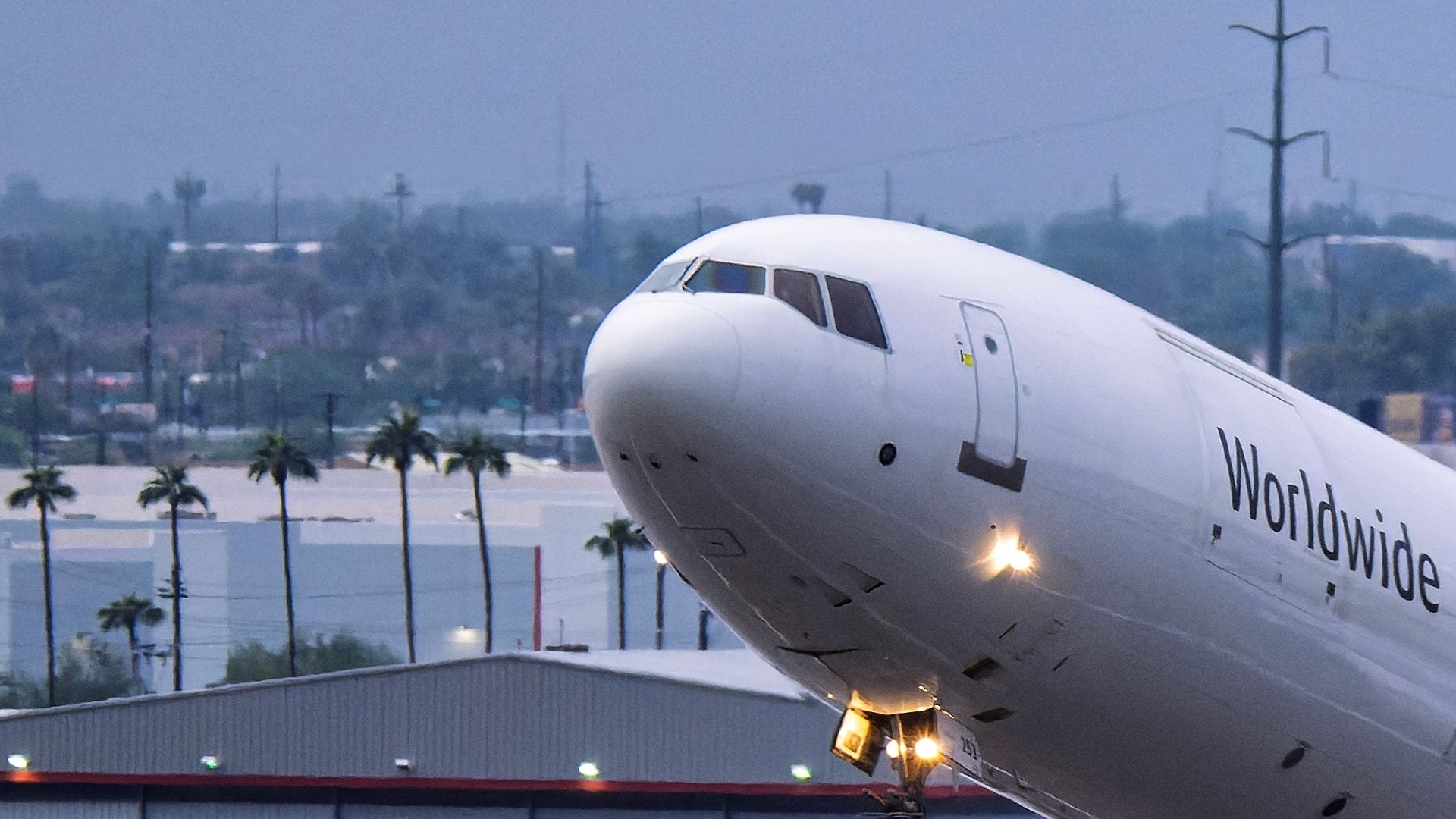World
Boeing Urges Immediate Suspension of MD-11 Operations After Crash

Boeing has recommended that all operators of the McDonnell Douglas MD-11 suspend flights following the fatal crash of **UPS Airlines Flight 2976** on **November 3, 2023**. This precautionary measure primarily affects **UPS** and **FedEx**, the leading operators of MD-11 cargo variants. Both airlines have grounded their fleets to ensure safety while further engineering analysis is conducted on the aircraft. **Western Global**, another MD-11 operator, is expected to comply with this recommendation.
The **National Transportation Safety Board (NTSB)** is spearheading the investigation into the incident, which occurred shortly after takeoff from **Louisville, Kentucky**. Preliminary details suggest that the aircraft climbed briefly before experiencing a catastrophic failure, leading to engine separation and cockpit warnings. Boeing’s recommendation is designed to prevent further incidents while the technical root cause is thoroughly examined.
Details of the Incident and Immediate Impact
On **November 4**, the UPS MD-11 crashed just moments after takeoff, prompting Boeing to issue a statement of support the same day. By **November 7**, the manufacturer formally advised the three remaining MD-11 cargo operators to suspend flights until a complete analysis could be completed in conjunction with the **Federal Aviation Administration (FAA)**.
The NTSB reported that the freighter reached an altitude of approximately **100 feet** before crashing, with one engine detaching entirely. A warning bell was noted just seconds after the aircraft achieved takeoff thrust. A preliminary report on the incident is expected within the next **30 days**.
The MD-11 ceased production in **2000**, and only around **60 airframes** remain operational among just three major U.S. carriers.
Financial Ramifications for Cargo Airlines
The grounding of MD-11 aircraft represents a significant reduction in fleet capacity for both UPS and FedEx, removing about **9%** and **4%**, respectively, according to analysis from **FlightRadar24**. This suspension comes at a critical time, coinciding with the peak holiday shipping season.
To mitigate risks, airlines may shift operations to **Boeing 767** and **Boeing 777** freighters on certain routes. Additionally, carriers are likely to densify cargo loads and adjust flight schedules, which may increase unit costs and create service-level penalties on priority products and contracts with the **United States Postal Service**. Some lower-yield routes might experience consolidation or delays, while higher-yield express lanes will be prioritized.
Should these flight suspensions extend beyond a few days, passengers may face increased operational costs and altered flight schedules. Both UPS and FedEx have stated they possess contingency plans, minimizing overall revenue loss due to the concentrated nature of the MD-11 fleet around several major hubs. Meanwhile, **Western Global**, with its limited active fleet, could experience cash-flow issues if utilization declines, potentially leading to wet-lease opportunities with larger cargo operators.
Boeing’s decision to recommend flight suspensions reflects a cautious approach as investigators work to determine whether the Louisville crash indicates a broader systemic hazard. The company is actively collaborating with the FAA to ensure safety measures are upheld.
The early details from the NTSB, including engine separation and cockpit alerts shortly after takeoff, raise concerns about potential risks associated with the aircraft’s control systems. Contextually, the FAA had previously issued an airworthiness directive for the MD-11 in **2024** regarding thrust-reverser issues, highlighting ongoing sensitivities surrounding the aircraft’s aging propulsion technology.
Boeing’s primary objective remains to uphold safety standards to mitigate reputational and liability risks while engineering teams assess necessary inspections and modifications. This recommendation serves to synchronize operator maintenance actions globally, reinforcing a commitment to safety in the aviation industry.
-

 Science3 months ago
Science3 months agoToyoake City Proposes Daily Two-Hour Smartphone Use Limit
-

 Health3 months ago
Health3 months agoB.C. Review Reveals Urgent Need for Rare-Disease Drug Reforms
-

 Top Stories3 months ago
Top Stories3 months agoPedestrian Fatally Injured in Esquimalt Collision on August 14
-

 Technology3 months ago
Technology3 months agoDark Adventure Game “Bye Sweet Carole” Set for October Release
-

 World3 months ago
World3 months agoJimmy Lai’s Defense Challenges Charges Under National Security Law
-

 Lifestyle3 months ago
Lifestyle3 months agoVictoria’s Pop-Up Shop Shines Light on B.C.’s Wolf Cull
-

 Technology3 months ago
Technology3 months agoKonami Revives Iconic Metal Gear Solid Delta Ahead of Release
-

 Technology3 months ago
Technology3 months agoApple Expands Self-Service Repair Program to Canada
-

 Technology3 months ago
Technology3 months agoSnapmaker U1 Color 3D Printer Redefines Speed and Sustainability
-

 Technology3 months ago
Technology3 months agoAION Folding Knife: Redefining EDC Design with Premium Materials
-

 Technology3 months ago
Technology3 months agoSolve Today’s Wordle Challenge: Hints and Answer for August 19
-

 Business3 months ago
Business3 months agoGordon Murray Automotive Unveils S1 LM and Le Mans GTR at Monterey









